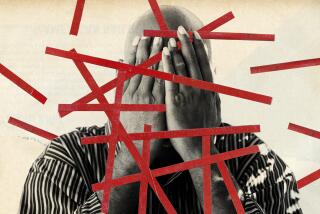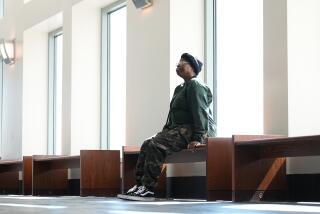Urging the Handicapped to Die : Bouvia Decision Is Victory for Bigotry, Not Self-Determination
- Share via
A 26-year old woman, attractive and educated, checks herself into a hospital psychiatric unit announcing her wish to commit suicide. She reports that she has undergone two years of devastating emotional crises: the death of a brother, serious financial distress, withdrawal from graduate school because of discrimination, pregnancy and miscarriage and, most recently, the breakup of her marriage.
She also has a serious physical disability, which she says is the reason she wants to die.
Three psychiatric professionals ignore the series of emotional blows, concluding that she is mentally competent and that her decision for death is reasonable. They base their judgment on one fact alone--her physical handicap.
The case is real. The woman is Elizabeth Bouvia. Her evaluators were hired by a team of American Civil Liberties Union lawyers intent on helping her win the legal right of assisted suicide. None of them had training or experience in treating people with disabilities. In fact, Bouvia has yet to be seen by any professional qualified to understand her life experience.
More disturbing still, the psychiatric evaluations reflect and reinforce pervasive societal devaluation of persons with severe disabilities.
In a dangerous decision last week the 2nd District Court of Appeal ordered that Bouvia had the right to have feeding tubes removed, which may constitute a medically assisted suicide. The court based its ruling on the prejudiced and ill-informed medical opinion that has distorted understanding of her from the beginning. The justices asserted that the “quality” of her life should be the central consideration. Yet they, too, focused on her disability as the lone reason she found her life ultimately unbearable. They also ignored her emotional stresses and, more important, her lifelong encounters with prejudice and discrimination.
For eight years Bouvia struggled to live independently. To pay for housekeeping and attendant-care services she obtained financial assistance through a California program, In-Home Supportive Services. Because of her type of disability she was legally entitled to the maximum aid, but in fact she received much less. Many county social-service departments deliberately try to limit the amount of in-home services that disabled people obtain. Other severely physically handicapped adults, striving to achieve independence and productivity, battle the same unjust treatment.
Despite such obstacles, Bouvia completed a college education and began graduate school. She intended to become a social worker. Again she met with discrimination. Denied field experience in a mainstream setting, she refused placement working only with handicapped clients. Frustrated and angry, she quit school, believing that her career goal was impossible.
Her psychiatric examiners further betrayed their ignorance of disabled people when they concluded that she could never achieve this aim. Richard Scott, her chief attorney, shared the bias. “Quadriplegics,” he said, “cannot work.” This will come as news to the executive director of the National Council on the Handicapped and to the new head of the National Institute of Handicapped Research. Both are quadriplegics, both more disabled than Bouvia.
In a concurring opinion that is shocking for its ignorance and bias, Justice Lynn Compton repeats the prejudicial nonsense that Elizabeth Bouvia is helpless: “. . . she must lie immobile, unable to exist except through the physical acts of others.” This is a woman who operated a power wheelchair, was halfway toward a master’s degree, married, made love with her husband and planned to become a mother. This is a woman who still could and might do all of those things if she were given appropriate psychiatric and medical treatment.
Bouvia struggled after something more important than physical self-sufficiency: self-determination. Unfortunately, she lives in a society that devalues her because she requires extensive physical assistance.
Compton wrote of the hope that this case “will cause our society to deal realistically with the plight of those unfortunate individuals to whom death beckons as a welcome respite from suffering.” That statement is ominous, just as this ruling is a dangerous precedent. Where handicapped persons are stigmatized and segregated, the right to die can quickly become a duty to die. Persons with severe disabilities may subtly be pressured into “choosing” judicially sanctioned, medically assisted suicide. This opinion says to them: Rather than guarantee your right to live meaningfully and productively, this society prefers to encourage your death.
Yet misguided libertarians hail this decision as upholding a disabled person’s right of self-determination. What a travesty of self-determination. Elizabeth Bouvia has found more support for her attempt to end her life than for any of her valiant efforts to live with dignity. If this ruling resultsin her death, it will be a victory not for self-determination but for bigotry.
More to Read
Sign up for Essential California
The most important California stories and recommendations in your inbox every morning.
You may occasionally receive promotional content from the Los Angeles Times.













